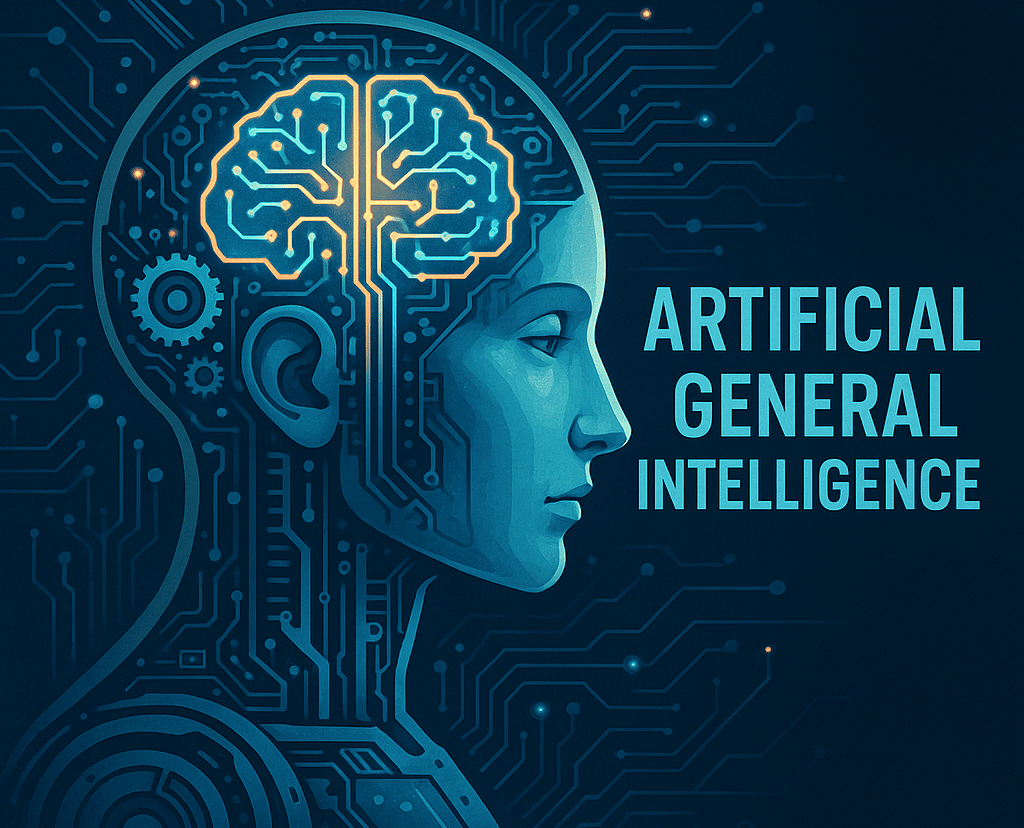AI Titans’ 2025 Race: Building Safe and Powerful AGI
giants like OpenAI, Google DeepMind, Meta, Anthropic, Microsoft, and Amazon invest $325B+, pursuing AGI with divergent strategies on openness, safety, commercialization, and regulation amid ethical and competitive tensions.
TECH INFRASTRUCTUREARTIFICIAL INTELLIGENCETECHNOLOGY
Eric Sanders
9/16/20253 min read


AI Titans at War: Inside the Fierce Race to Build AGI in 2025
Artificial intelligence isn’t just shaping the future—it’s ripping up the playbook and rewriting it in real time. In 2025, the stakes have never been higher. The tech behemoths—OpenAI, Google DeepMind, Meta, Anthropic, Microsoft, and Amazon—are pouring over $325 billion into the relentless pursuit of Artificial General Intelligence (AGI). This isn’t just a sprint; it’s an all-out war fought on multiple fronts: openness versus secrecy, innovation versus safety, and rapid commercialization versus ethical restraint. If you think AI is in the “cool toy” phase, think again. The future of humanity’s relationship with technology is on the line.
The Billion-Dollar Battle for AGI Supremacy
The race for AGI—an intelligence that can perform any intellectual task a human can—is the most ambitious technological quest of our time. Each titan is playing a very different hand, with wildly varying philosophies and strategies:
- OpenAI champions a hybrid approach focused on rapid innovation but coupled with increasing safety protocols and collaboration with regulators.
- Google DeepMind leans heavily on fundamental research and a strong internal ethos of “open science,” cautiously balancing transparency with competitive edge.
- Meta adopts a more monetization-driven path, aggressively pushing AI into consumer products while grappling with ethical concerns that come with scale.
- Anthropic stands out as a safety-first outfit, prioritizing robust mechanisms to ensure that AGI systems remain aligned with human values.
- Microsoft and Amazon, massive cloud infrastructure providers, embed AI aggressively into their ecosystems, betting on widespread commercial adoption as a long-term strategy.
Together, their combined investments have exceeded $325 billion—a staggering figure that underscores the mission’s existential and economic gravity.
Beyond Dollars and Algorithms: The Human and Ethical Dimension
For all the hearty funding, raw computing power, and cutting-edge algorithms, the AI race is far from just a numbers game. It’s also a battlefield charged with ethical, societal, and political considerations.
"In this arena, every choice about openness, safety standards, and regulatory engagement becomes a statement on what kind of future we want our technology to make possible," the article notes. Consider this:
- Openness vs. Secrecy: Should groundbreaking AI models be open-sourced to democratize access—or locked down to prevent misuse? OpenAI started with a commitment to openness but has since pulled back in certain areas, reflecting the tension between accelerating progress and managing risk.
- Safety vs. Speed: The faster these companies push out advanced AI, the greater the risk of unexpected consequences. Anthropics’ founding principle emphasizes safety, a stance born from fears that AGI could spiral beyond human control.
- Regulation vs. Innovation: Governments worldwide are scrambling to catch up with rapid AI advancement. The tech giants must navigate a minefield of potential rules and restrictions that could either stifle innovation or protect the public interest.
These conflicting pressures create a complex web of rivalry and sometimes uneasy collaboration.
What This Means for the Future
If you peel back the layers of this corporate chess match, it becomes clear: the development of AGI isn’t a tech fad. It’s a crossroad for humanity.
Every decision—from who controls the technology, to how transparent the development process is, and the pace at which AGI is released—will impact economy, national security, privacy, and even what it means to be human.
Here is what we, as observers and participants in this unfolding story, should take away:
- Understand the Stakes: AGI has the potential to revolutionize entire industries, from healthcare to education. But it also holds risks of misuse, bias, or loss of control.
- Value Transparency: Pushing for openness in AI research can democratize benefits and mitigate hidden dangers. Blind trust in corporations is dangerous; informed skepticism is healthy.
- Demand Accountability: Ethical guardrails and governmental oversight need to be part of the equation. The race to innovate should not outpace our capacity to manage consequences.
- Stay Informed and Engaged: This is not just a niche tech issue. It affects jobs, privacy, and societal norms and deserves broader public discourse.
As OpenAI’s pivots and Google DeepMind’s cautious transparency show, the path to AGI is anything but linear.
The Human Question Behind the Machine Race
Watching these AI giants clash and collaborate raises a deeper question: Who are these technologies really built for? Are they designed to empower everyday people, or just a handful of corporations and governments hungry for dominance? And more pressingly: How do we, as individuals and societies, steward the tremendous power these emerging intelligences promise? As the race hurtles forward, these aren’t just technical or commercial considerations. They are, quite simply, the questions that will define the next chapter of human civilization.
In the scramble to build machines that can think like us, have we paused enough to ask: How do we ensure that this new form of intelligence serves all of us—not just the privileged few?
The AI arms race might be about dollars and data now. But in the end, it’s about values, trust, and the kind of future we hope to build together. Are we ready to face that responsibility?
Efficiency
Transform your workflows and reclaim your time.
Contact Us
Need A Custom Solutions? Lets connect!
info@thedigiadvantagepro.com
772-228-1085
© 2025. All rights reserved.
